Planning worship?
Check out our sister site, ZeteoSearch.org,
for 20+ additional resources related to your search.
- |
User Links
Person Results
Abby Hyde
1799 - 1872 Person Name: Mrs. Abby B. Hyde Topics: Access to God Author of "The call of love" in Laudes Domini Hyde, Abby Bradley, was born at Stockbridge, Massachusetts, Sept. 28, 1799, and married to the Rev. Lavius Hyde, of Salisbury, Mass., Sept. 28, 1818. She died at Andover, April 7, 1872. Her first poem, an Address to Mr. Wolfe, the Jewish missionary, appeared in a New Haven paper in 1822 or 1823, and from it Dr. L. Bacon (q.v.) took two hymns for his Hymns & Sacred Songs for the Monthly Concert, Andover, 1823. Those hymns have merit, but are not now in common use. Asahel Nettleton included 9 pieces by her in his Village Hymns, 1824, and 34 more were given in the revised and enlarged edition of the same, 1851. An additional hymn appeared in Nason's Congregational Hymn Book, 1857.
Of those hymns the following are still in common use:—
1. Ah, what can I a sinner do! Lent. From Nettleton's Village Hymns, 1824, in 5 stanzas of 4 lines, into a few collections.
2. And canst thou, sinner, slight! Grieve not the Spirit. From Nettleton's Village Hymns, 1824, in 4 stanzas of 4 lines, into a great number of American collections, and a few in Great Britain.
3. Behold the glorious dawning bright. Second Advent. From Nettleton's Village Hymns, 1824, in 4 stanzas of 4 lines. Limited in use.
4. Dear Saviour, if these lambs should stray. Prayer on behalf of children. In Nettleton's Village Hymns, 1824, in 4 stanzas of 4 lines. A touching hymn, and widely used.
5. Say, sinner, hath a voice within! Exhortation to Repentance. In a letter to Mr. Nason, dated July 10, 1857, Mrs. Hyde says that this hymn "was written down from my lips by a young sister, when I was not able to hold up my head from the pillow." It appeared in Nettleton's Village Hymns, 1824, in 6 stanzas of 4 lines, and is in extensive use.
All Mrs. Hyde's pieces in the Village Hymns are signed "Hyde." [Rev. F. M. Bird, M.A.]
-- John Julian, Dictionary of Hymnology
Abby Hyde
James Nares
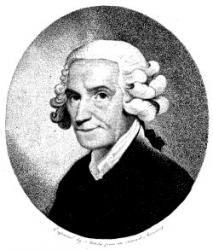
1715 - 1783 Person Name: J. Nares Topics: Access to God Composer of "AYNHOE" in Laudes Domini Born: April 19, 1715, Stanwell, Middlesex, England.
Died: February 10, 1783.
Buried: St. Margaret’s, Westminster, England.
After his family moved to Oxford, Nares became a chorister in the Chapel Royal. He later became deputy organist at St. George’s Chapel, Windsor; organist in York Cathedral (1734); and organist in the Royal Chapel and composer to the king (1756). He received a doctorate of music degree from Cambridge University in 1756. In 1770, the Catch Club awarded him a prize for his glee To All Lovers of Harmony.
Sources:
Frost, p. 683
Nutter, p. 462
http://www.hymntime.com/tch/bio/n/a/r/nares_j.htm
====================
http://en.wikipedia.org/wiki/James_Nares
James Nares
B. C. Unseld
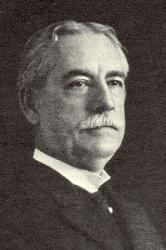
1843 - 1923 Person Name: Benjamin C. Unseld Topics: Access to God Composer of "ANCYRA" in The Psalter Benjamin Carl Unseld, 1843-1923
Born: October 18, 1843, Shepherdstown, West Virginia.
Died: November 19, 1923.
Buried: Elmwood Cemetery, Shepherdstown, West Virginia.
After leaving school at age 14, Unseld worked as a clerk in a country store. He received his first musical instruction around age 15, from a companion who had attended a singing school. He was shown the representation of the scale in the old Carmina Sacra, and had it sung for him. At the friend’s suggestion, he got permission from his pastor to practice on the church organ. Since both boys worked, their only chance to practice was after the store closed at 9:00 p.m., and occasionally at noontime. They went to the church together and took turns, one at the keyboard and the other at the bellows.
Shortly after the Battle of Antietam in September 1862, some of which Unseld witnessed, he left home and became a bookkeeper in the general offices of a railroad in Columbia, Pennsylvania. He sang in a choir, and gained further practice reading music. He rented a melodeon and spent much time in his room improvising on it. He bought a copy of Woodbury’s Harmony and Musical Composition, and studied it as well as he could without a teacher. He accepted an invitation to play the organ in the local Methodist church, on the condition that he received the tunes early in the week so he could learn them. This was his first position as an organist.
In the spring of 1866, he entered the Musical Institute in Providence, Rhode Island, conducted by Eben Tourjée (founder of the New England Conservatory in Boston, Massachusetts, and father of Lizzie Tourjée). There he studied voice, piano, organ, and harmony. After learning of Unseld’s business experience, Dr. Tourjée made him secretary of the school; in 1867, Unseld became the first secretary of the New England Conservatory.
Starting in 1870, Unseld attended schools led by Theodore F. Seward. There he met George Webb, Lowell Mason, James McGranahan, Charles Case, and other notables in the music community. In 1874, Unseld taught at Fisk University in Nashville, Tennessee, and helped train Fisk’s Jubilee Singers for their European trip. In 1877 and 1878, he was organist and choir master at St. James’ Episcopal Church, Lancaster, Pennsylvania.
In 1879, Unseld moved to New York City, and for 15 years taught, led choirs, composed and published. In New York, his musical headquarters was the publishing house of Biglow & Main Company, where he was in almost daily contact with the popular composers and teachers of the day: Ira Sankey, Horatio Palmer, Hubert Main, Robert Lowry, et al. In 1894, Unseld moved to Cincinnati, Ohio, and worked as an editor for the Fillmore Music House. In 1898, he moved to Dayton, Ohio, and worked in a similar capacity for the Lorenz Publishing Company. He moved back to New York City in 1901, then to Hagerstown, Maryland in 1905. He and his wife Sallie were apparently living in Tennessee as of 1920. Unseld’s works include:
The Choral Standard (New York: Fillmore Brothers, 1895)
Progress in Song, with E. T. Hildebrand (Cincinnati, Ohio: The Fillmore Brothers Company)
Unseld was inducted into the Southern Gospel Music Association Hall of Fame in 2004.
Sources--
Hall, pp. 239-44
Music--
Ancyra
Euphemia
He Is Risen
Hordville
Make Haste!
Meschach
Twilight Is Falling
Unseld
Wonderful Message
--www.hymntime.com/tch
B. C. Unseld
H. Cooke
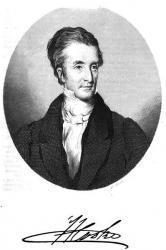
1788 - 1868 Person Name: Cooke Topics: Access to God Author of ""The footsteps of the flock"" in Laudes Domini Cooke, Henry, D.D., LL.D., was born at Grillagh, near Maghera, County Londonderry, Ireland, May 11, 1788, and was educated at the University of Glasgow. He became pastor of Dueane Presbyterian Church in 1808. After holding other pastorates he was appointed to that of the Presbyterian congregation in May Street, Belfast. He died in Belfast, Dec. 13, 1868. His Life was published by Dr. J. L. Porter, in 1871. The hymn, "Jesus, Shepherd of the Sheep, Who Thy Father's flock," &c. (The Good Shepherd ), in the Canadian Presbyterian Hymn Book, 1880, is by him.
--John Julian, Dictionary of Hymnology, Appendix, Part II (1907)
H. Cooke
Robert M. Offord
1846 - 1924 Person Name: R. M. Offord Topics: Access to God Author of "The Penitent's Plea" in Laudes Domini Offord, Robert M., son of an English "open-communion" Baptist, was born at St. Austell, Cornwall, Sept. 17, 1846. In 1870 he removed to America, where he was associated for some time with the Methodists, but subsequently joined the Reformed Dutch Church in 1878. He is editor of the New York Observer. To that paper he contributed:—
1. Jesus, heed me, lost and dying. Lent.
2. It is no untried way. Christ's Burden.
No. 1 appeared on Jan. 25th, and No. 2 on Feb. 1st, 1883. They were revised for Laudes Domini, N. Y., 1884 (Duffield's English Hymns, N. Y., 1886).
--John Julian, Dictionary of Hymnology (1907)
Robert M. Offord
William Knox
1789 - 1825 Topics: Access to God Author of "Job 22:21" in Laudes Domini Born: August 17, 1789, Firth, Lilliesleaf, Roxburgh, Scotland.
Died: November 12, 1825, Edinburgh, Scotland.
Buried: New Calton Burial Ground, Edinburgh, Scotland.
Knox, William, born at Firth, Lilliesleaf, Roxburgh, Aug. 17, 1789, and educated at the parish school, and the grammar school at Musselburgh. For some time he was engaged in farming at Wrae, near Langholm, Dumfriesshire; but not succeeding to his satisfaction, he left Wrae in 1817, and finally settled in Edinburgh in 1820, where he subsequently obtained employment as a contributor to the public journals. He died in Edinburgh, Nov. 12, 1825. His poetical works were, (1) The Lonely Hearth, North Shields, 1818 ; (2) Songs of Israel, 1824; (3) The Harp of Zion, 1825; and (4) these three works, together with a short Memoir, as his Poems, &c, Lond., J. Johnson, 1847. The Songs and Harp are mainly paraphrases of portions of Holy Scripture. A few have come into use as congregational hymns, as, "A voice comes from Ramah," "Acquaint thee, O mortal," "O sweet as vernal dews that fall" (Ps. cxxxiii.), and others.
--John Julian, Dictionary of Hymnology (1907)
William Knox
Johann Georg Frech
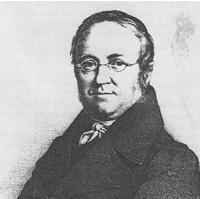
1790 - 1864 Person Name: Johann G. Frech Topics: Access to God Composer of "ASPURG" in The Psalter Johann Georg Frech (* January 17 1790 in Kaltental, † August 23 1864 in Esslingen am Neckar ) was a German music director, composer and organist.
Naughty was the son of a watchmaker and organ builder. He visited here until his 13th Age of the school, then high school in Stuttgart and took lessons in music.
In 1806 he was teaching assistant in Degerloch while still in Stuttgart, studied music. In 1811 he went as a teaching assistant after Esslingen and in 1812 a music teacher at the newly established Esslinger teacher seminar. In 1820 he received the office of a municipal director of music and organist at the main church in Esslingen, where he remained until his retirement in 1860. His successor was Christian Fink.
Naughty took a significant role in the Württemberg church singing together with Konrad Kocher and Friedrich Silcherstraße one. Together with the aforementioned He created "The Württemberg Choral Book" of 1828 and was co-editor of "Württemberg Choral Book" of 1844.
Frech has composed six symphonies, many choral works, including 22 chorales for Württembergischen chorale books, 67 cantatas, an opera, the oratorio "Abraham on Moriah" and some organ works.
In the district of Stuttgart Kaltental a street was named after naughty.
--de.wikipedia.org/wiki/
Johann Georg Frech
H. H. McGranahan
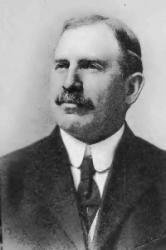
1854 - 1931 Topics: Access to God Composer of "[Shall not thy people joy in thee]" in Bible Songs Hugh Henry McGranahan USA 1854-1931. Born at Jamestown, PA, nephew of James McGranahan, gospel hymnist, he studied music under hymnists, George Root, and Horatio Palmer, and at the New England Conservatory of Music in Boston, MA. He married Grace McKinley, and they had two sons: Joseph and James. He became an editor and author. His most widely held publications include: “The juvenile class and concert” (1882,1895), “The choral class book” (1898), “Hymn and Psalm selections compiled” (1914), “Glad praises” (1914), and “Select temperance songs, new and old” (1915). He began his career directing musical institute conventions and later had charge of church choral unions in New York, NY, and Philadelphia, PA. He also headed the music department at Moody Bible Institute in Chicago, IL, for five years. After leaving the music field for health reasons, he entered the insurance business in Pittsburgh, PA, where he directed music in the educational department of the Bellefield Presbyterian Church. In 1880 he taught music in South Shenango, PA. In 1914 he was back in Jamestown, PA, where he later died.
John Perry
H. H. McGranahan
Ernest R. Kroeger

1862 - 1934 Topics: Access to God Composer of "FULTON" in The Psalter Born: August 10, 1862, St. Louis, Missouri.
Died: April 7, 1934, St. Louis, Missouri.
Buried: Bellefontaine Cemetery, St. Louis, Missouri.
Kroeger was a charter member of the American Guild of Organists; member the National Institute of Arts of Letters; conductor of the Amphion Male Chorus in St. Louis (1883-84); organist at the Unitarian Church of the Messiah, St. Louis (1886); director of the College of Music at Forest Park University (1887); president of the Music Teachers’ National Association (1896-97); president of the Missouri State Music Teachers’ Association (1897-99); instrumental adjudicator at the annual Kansas Jubilee (1900-03); master of programs in the Bureau of Music at the St. Louis World’s Fair, 1904; adjudicator at the Welsh Eisteddfod in Canton, Ohio (1906); and director of the music department at Washington University, St. Louis (1925-34). He also ran the Kroeger School of Music in St. Louis (1904-34).
--www.hymntime.com/tch/
============
Successful American composer and teacher; born at St. Louis, Mo. He began studying violin and piano when he was five years old, and received his entire musical education in this country, principally in St. Louis, where he is located at present, and holds a prominent position as a teacher, pianist and composer. He is director of the College of Music at the Forest Park University for Women and is concert pianist of the Kroeger School of Music. Was president of the Music Teachers' National Association from 1895 to 1896, and of the Missouri State Music Teachers' Association from 1897 to 1899. Is a fellow of the American Guild of Organists and was master of programs of the Bureau of Music at the St. Louis Exposition in 1904. He has written a great many different kinds of music, and is one of a very few Americans who have published fugues. Mr. Kroeger says that some of his ideas are entirely musical, while others are attempts to illustrate poems in tones, such as his symphony, a suite, and overtures on Endymion, Thanatopis, Sardanapalus and Hiawatha. He has also published a very clever group of sonnets, on various themes; Twelve Concert Studies, which Hughes says "show the influence of Chopin upon a composer who writes with a strong German accent;" an etude, Castor and Pollux; a Romanze; and other studies. A Danse Negre and Caprice Negre resemble similar works of Gottschalk; and his Dance of the Elves is dedicated to Mme. Rive-King.
--grandemusica.net/musical-biographies
Ernest R. Kroeger
James M. North
b. 1836 Person Name: J. M. North Topics: Access to God Composer of "[The Lord is just in His ways all]" in Bible Songs
James M. North


 My Starred Hymns
My Starred Hymns


